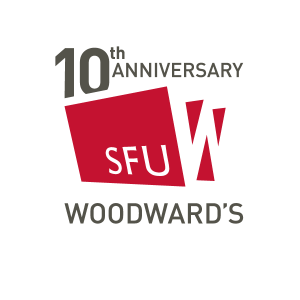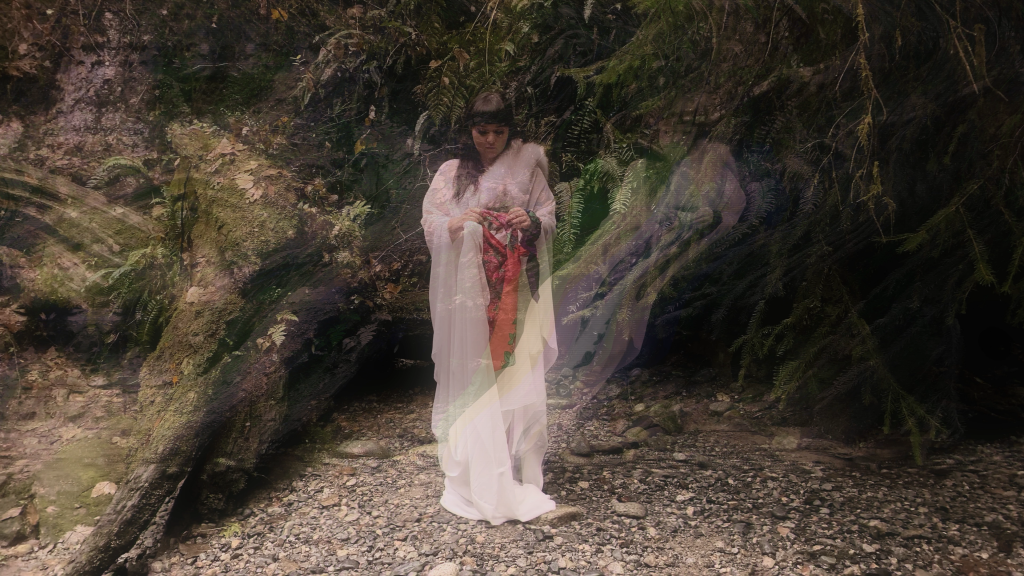
Celebration
Dir. Edzi’u & Justin Ducharme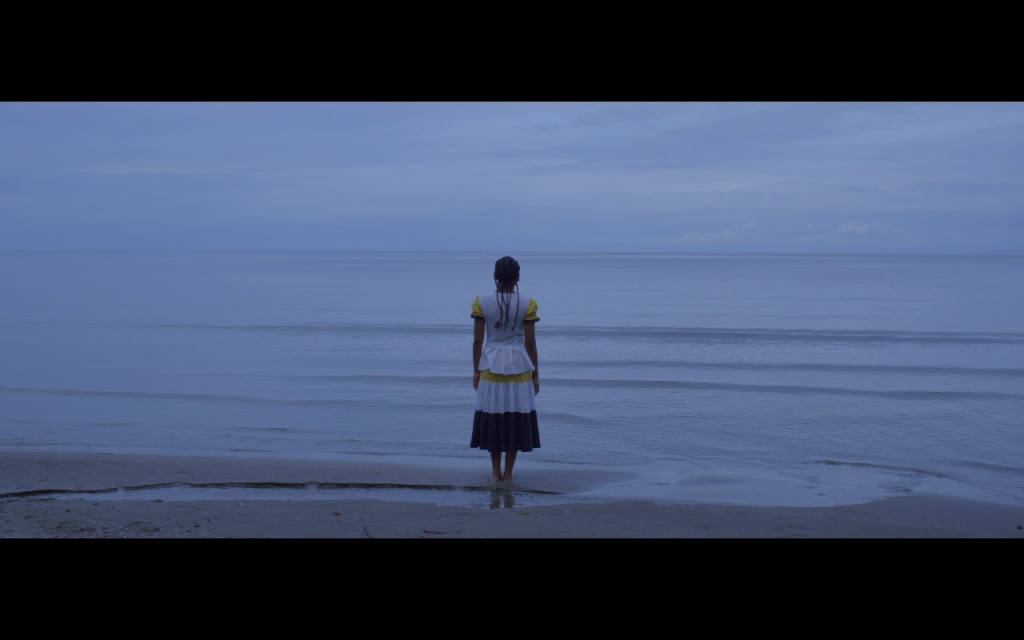
Soul of the Sea (Liremu Barana)
Dir. Elvis Caj
Fôlego Vivo
Dir. Association of the Native Cariris of Poço Dantas-Umari
Future Ancestors: Storytelling as Ceremony
Curated by Karmella Cen Benedito de Barros
Curated with the intent to spark an appreciation for the complex and diverse experiences and expressions of culture through film, Future Ancestors: Storytelling as Ceremony aims to honour and uplift stories centering Indigenous youth, girls, women, queers, femmes and matriarchs across many territories.
This 19th Vancouver Latin American Film Festival’s Indigenous Short Film Program seeks to amplify the stories and voices of numerous Indigenous communities and peoples across Turtle Island “North America”, Central and South America.
As the Vancouver Latin American Film Festival takes place on unceded and unsurrendered Musqueam, Squamish and Tsleil Waututh territories, we acknowledge the necessity to uplift experiences of Indigeneity both from Turtle Island and Latin America. This work is done with gratitude and humility, acknowledging that we celebrate culture and Indigeneity through the art of film on stolen land.
Future Ancestors: Storytelling as Ceremony seeks to illustrate the distinct and innately complex stories of Indigenous peoples, as well as the intersections and woven connections between Indigenous cultures across Turtle Island, Central and South America. It is my hope that an appreciation for the innate strength, leadership and foundation that Indigenous youth, girls, women and matriarchs offer to our communities is celebrated and explored through this program. As well, I hope to highlight the significance of intergenerational and interconnected knowledge sharing as fundamental to the development of future ancestors.
I hope that this program offers an understanding for the embodied elements of ceremony and tradition which exist and have always existed through Indigenous storytelling. It is my pleasure to invite you to join us in witnessing these future ancestors through our selected short films.
Kinanâskomitin,
Karmella Cen Benedito De Barros
Program running time: 78 min
Available for viewing ONLINE across Canada from August 26 – September 5.
Join the dialogue on Saturday, Sept 4 at 2pm PT on VLAFF’s Facebook Live.
Tickets on a sliding scale from $0 – $20.

Celebration
Dir. Justin Ducharme
Métis, 2020 | 2.45 min
Celebration is a track of Kime Ani (2018), debut album by Edzi’u, a 2S Tahltan and inland Tlingit sound artist, songwriter, composer. Celebration is a cleansing, a stepping into power, a surrendering.
Justin Ducharme is a filmmaker, writer, dancer and curator from the small Métis community of St. Ambroise on Treaty 1 Territory. He is the writer/director of four short films: To Be Alright (2013), Him/Her (2016), Positions (2018), and The Dancer (2019). His writing has been featured in Canadian Art and Prism International magazine. He currently lives and works on Unceded Coast Salish Territory.
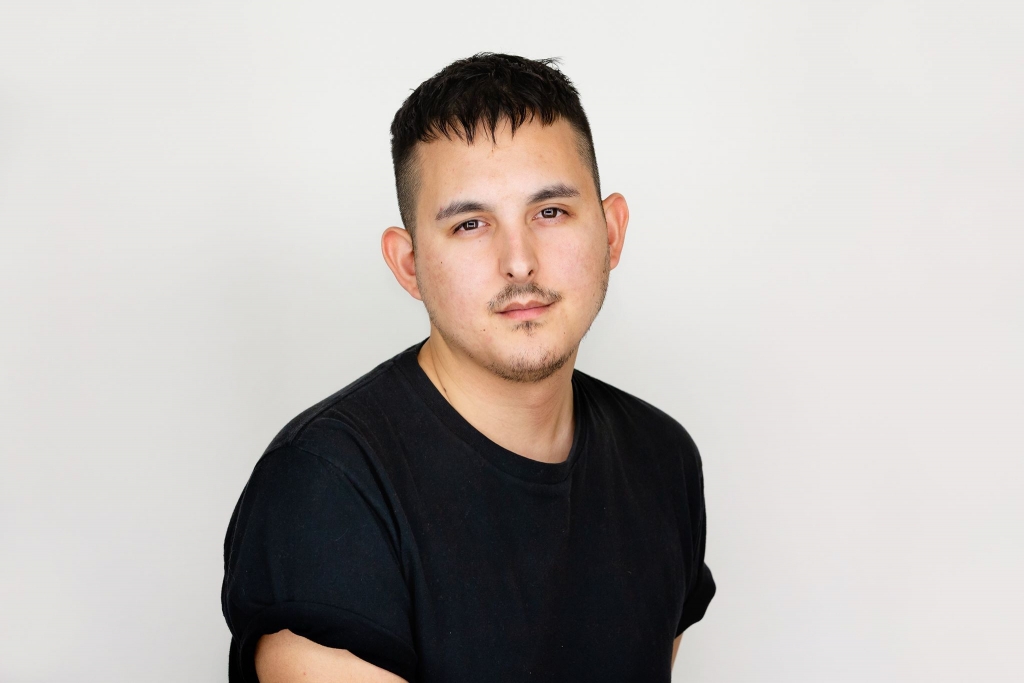
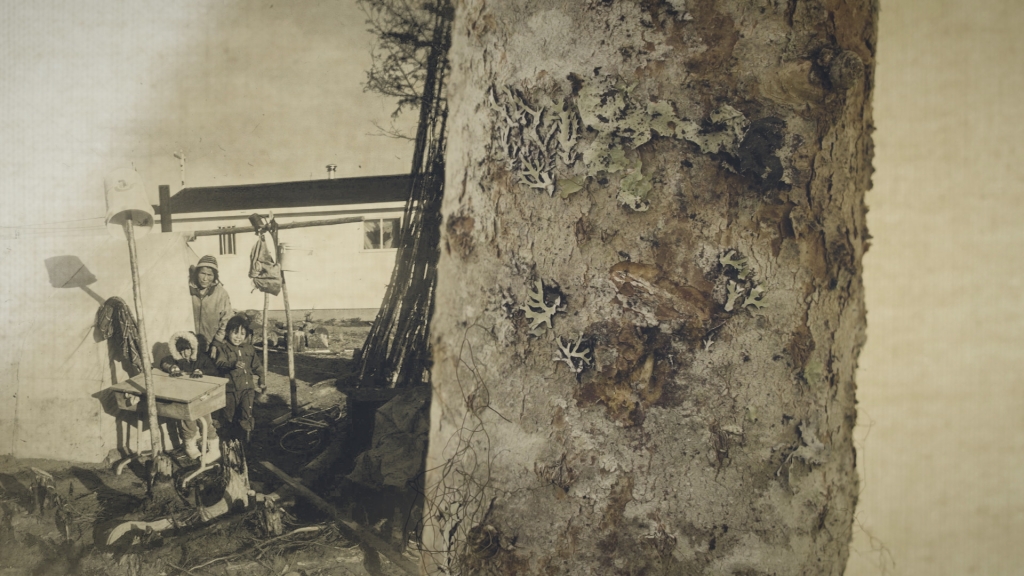
Inniun ueshkat mak anutshish
(Life, Then and Now)
Dir. Mary Menie Mark
Pakuashipi/Innu, 2020 | 4.54 min
Innu-aimun with English subtitles
A conversation between a mother and her daughter; memories of passing from the hut to the house.
Mary Menie Mark was born in Pakuashipi. She holds a Diploma in Special Education from the Cégep de Sept-Îles and a Certificate in Special Needs Intervention. She has held several positions in the community, including addiction counsellor, daycare supervisor and Chief of the community of Pakuashipi. Inniun ueshkat mak anutshish is her first experience with the Wapikoni team.
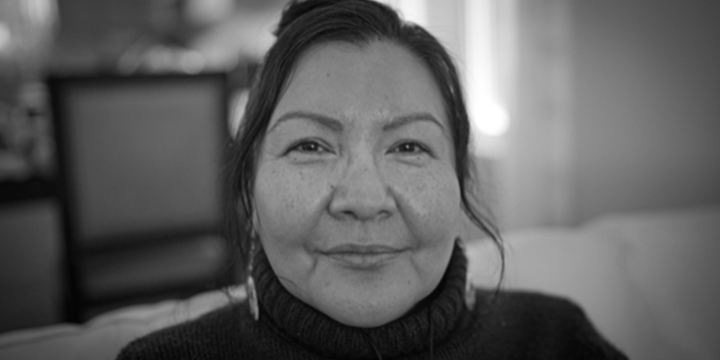
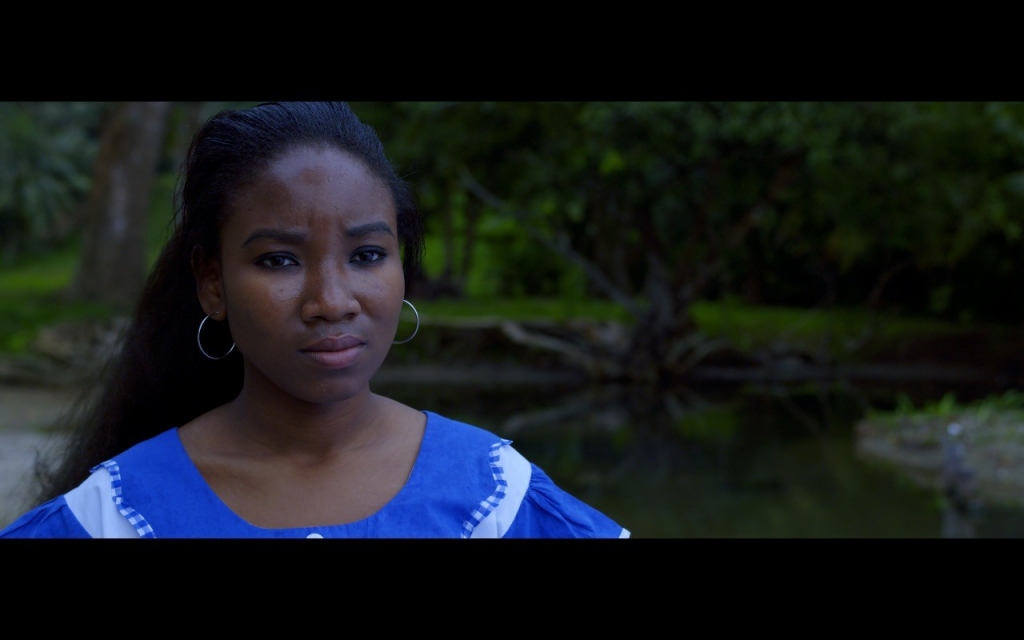
Soul of the Sea
(Liremu Barana)
Dir. Elvis Caj Cojoc
Garífuna/Guatemala, 2019 | 10 min
Garífuna with English subtitles
Arisa dances every day and night to songs that tell of the struggles of her people and her ancestors. Music and memory form a lyrical meditation on young womanhood, identity, and belonging in a Garífuna community in Guatemala.
Elvis Caj Cojoc (Maya, Poqomchi ‘, Alta Verapaz) has made seven short films including Nanimaj Chik (To Grow up Again) and Flor Blanca. His work has screened at the Vienna Shorts, Uppsala Short Film Festival, Chicago Latino Film Festival, among others. He is currently developing his first feature, Resistir, with the Norwegian company Mer Film.
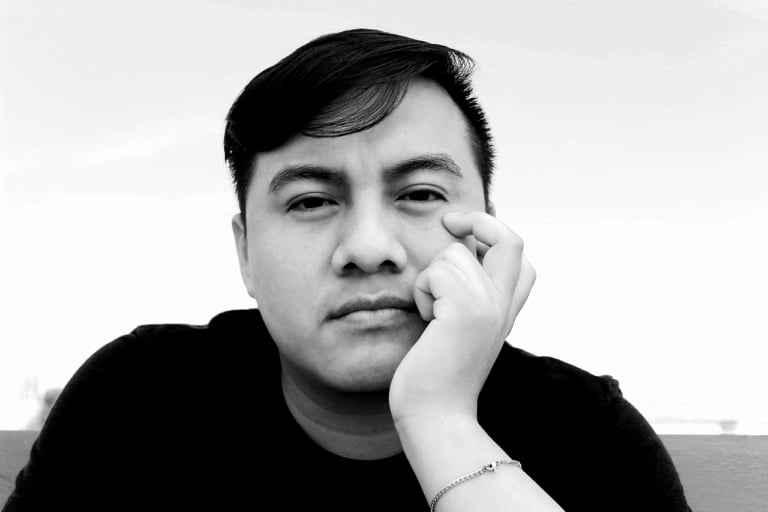
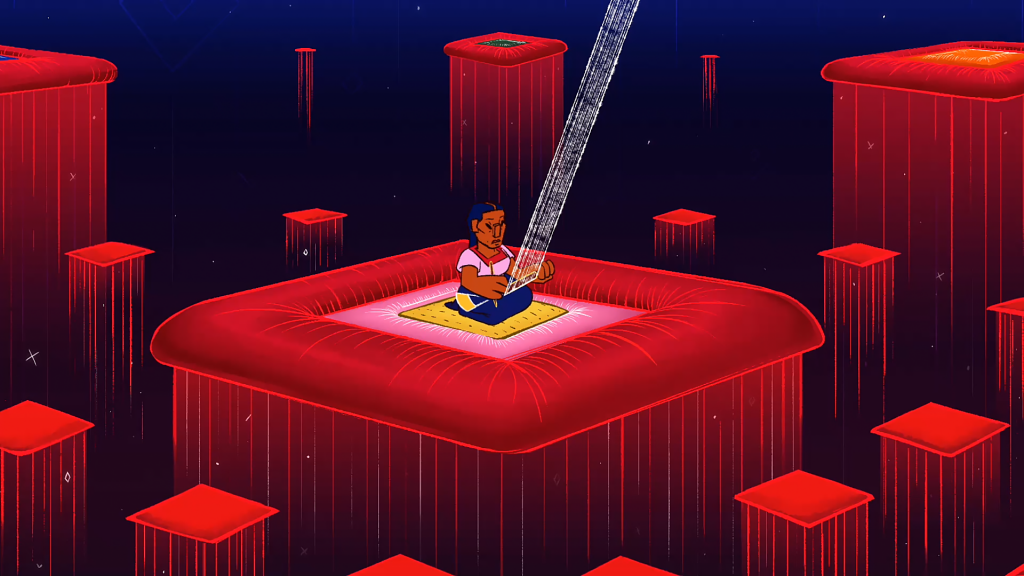
My Weaving Hands
(Chjolobaj Li K’omtake | Mis manos tejedoras)
Dir. Río Castañeda
Tzotzil/Mexico/USA, 2021 | 5.17 min
Mayan Backstrap Weaving is a complex and symbolic art form, and is often undervalued or bargained for in the marketplace of Latin America, specifically México. For Indigenous non-organized weavers, making money can become very strenuous, especially when their huipiles (woven shirts) must go undervalued and trivialized.
Río Castañeda, born and raised in Mexico City (b. 1999), migrated to the US in 2015. They received a BFA in Animation from MassArt: Massachusetts College of Art + Design in 2021. They have made three short animated films: Mis manos tejedoras (2021), We Are Indigenous (2019), and Zero Tolerance (2018).

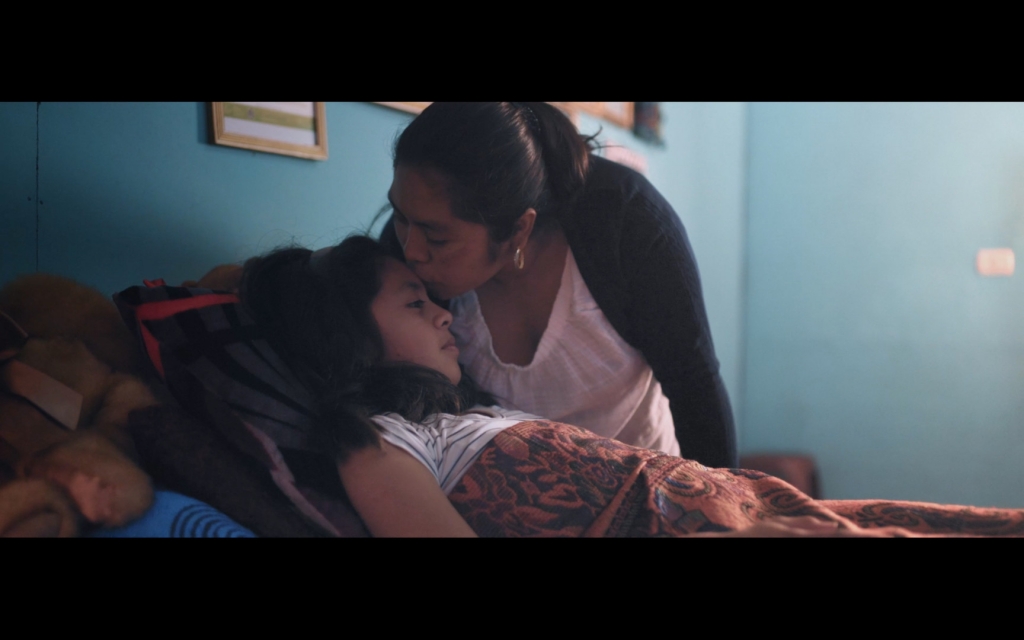
Ixch’umil
Dir. Miguel Ajcot
Uspanteka/Guatemala, 2020 | 12.30 min
Uspantek (Mayan) with English subtitles
Ixch’umil is a 10-year-old girl who goes on a trip with her mother from Guatemala City to her hometown to visit her grandmother who is sick. Ixch’umil is about to discover the connection of her cultural roots through the teachings of her grandmother.
Miguel Ajcot has worked in production, film, and television for more than 11 years. Currently, he works as Technical Coordinator at Universidad Francisco Marroquín’s Film School. He wrote and directed his first short film that tells the story of a Uspanteka family, from which he originated.
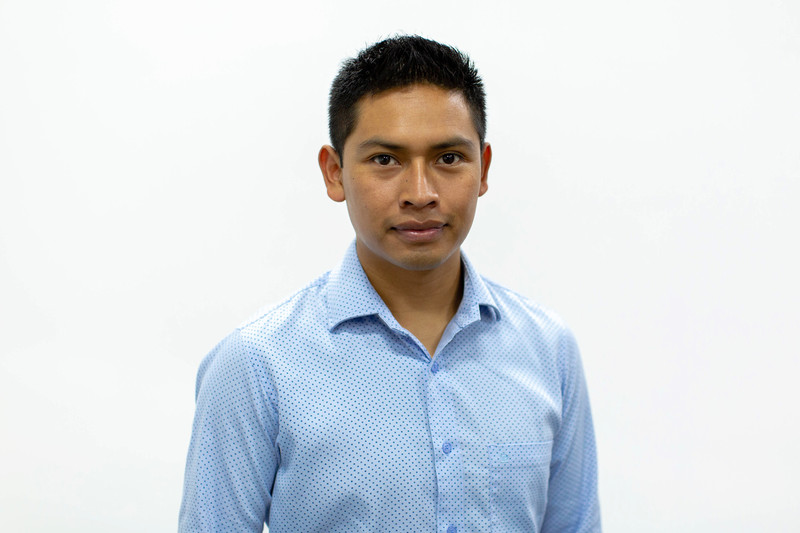
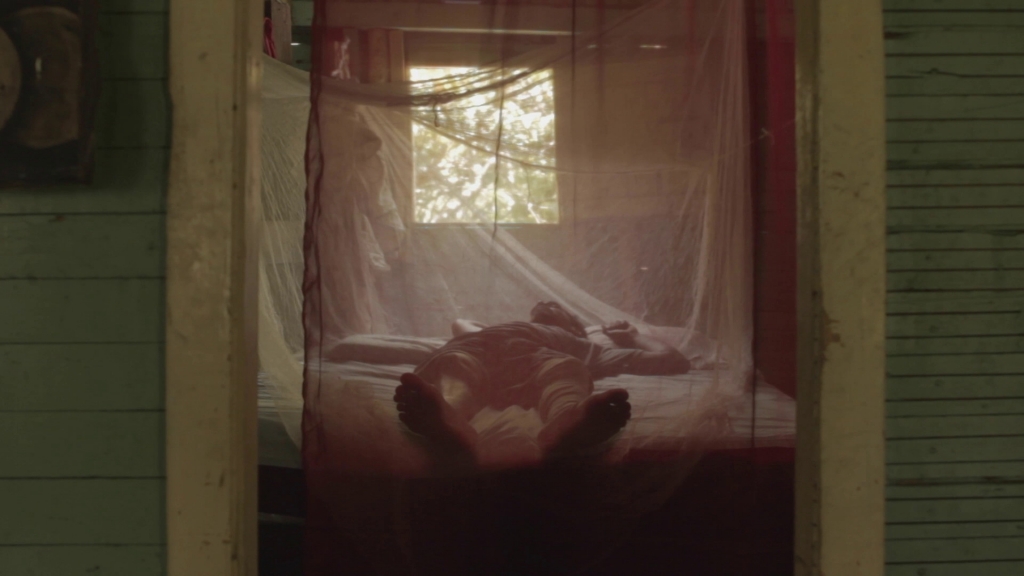
Wolves Dream of the Lord’s Lambs
(Lo que sueñan los Lobos, los Corderos del Señor)
Dir. Carlos García
Dominican Republic, 2020 | 18 min
Spanish with English subtitles
Marcia lives with her husband, Tony, who can barely move because of a diseased leg. She suffers constant abuse from him. But Marcia’s life takes a turn after she gains the power to perform miracles and contemplates if she will heal Tony from his illness.
Carlos García was born in La Romana, Dominican Republic in 1985. He has directed and collaborated on several short films: Mañana (Green Globe Award Winner), Herida (2nd Place Fine Arts Film Festival) and Homo Ludens (Official Selection at the XV International Festival-Workshop of Film Schools Kinoproba). He is part of the first generation of graduate filmmakers from the Altos de Chavón School of Design and is currently working on his first feature film entitled La mar de noche se prende en candela.
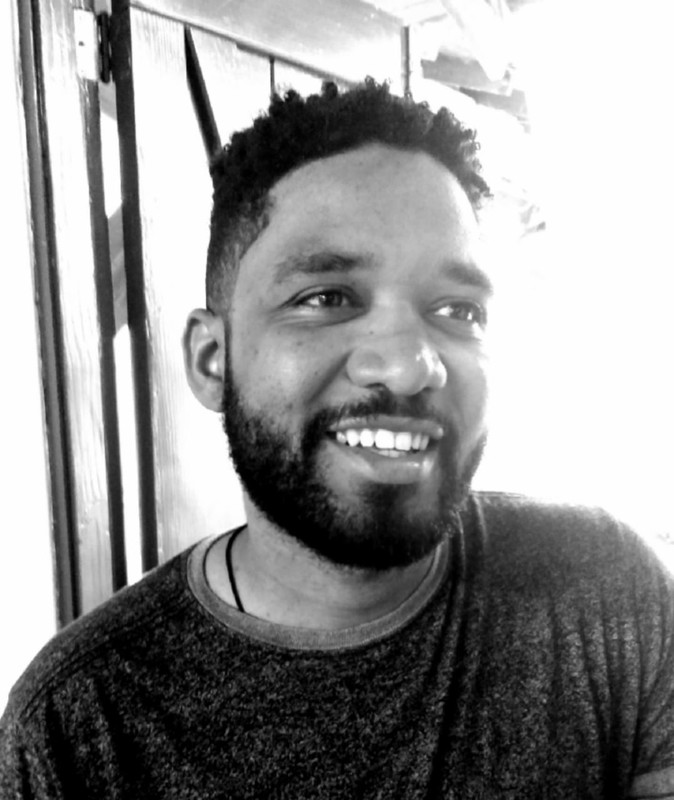
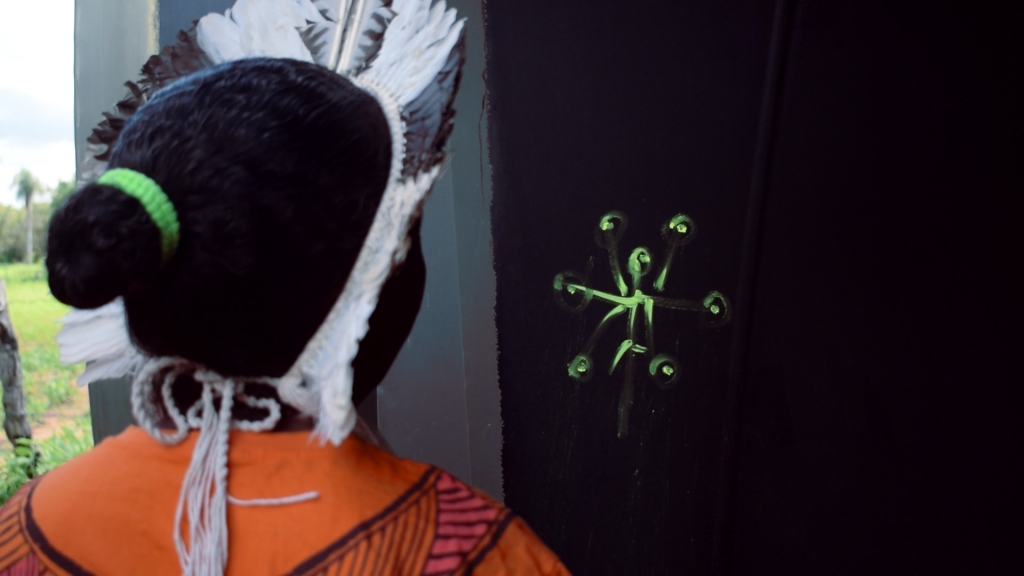
Fôlego Vivo
(Breath Alive)
Dir. Association of the Native Cariris of Poço Dantas-Umari
Kariri/Brazil, 2021 | 25 min
Kariri & Portuguese with English subtitles
An Indigenous community of the Kariri people, located in the Chapada do Araripe (rural area of Brazil), reflects on water: the Indigenous myth of re-creation of the world together with the waters, against the capitalist developmental myth of water control, and human and non-human bodies inhabiting the San Francisco River.
We are a collective of Indigenous people (formed by majority of women, multigenerational and that has members QTBIPOC and persons with disabilities) that manages the Association of the Native Cariris of Poço Dantas-Umari that promotes a number of cultural activities both in and outside our community, and in the virtual space (in times of pandemic) through our Indigenous Kariri culture. Within our Kariri culture we work with crafts, audiovisual, toré dance, medicinal plants, cooking, storytelling, photography, among others.
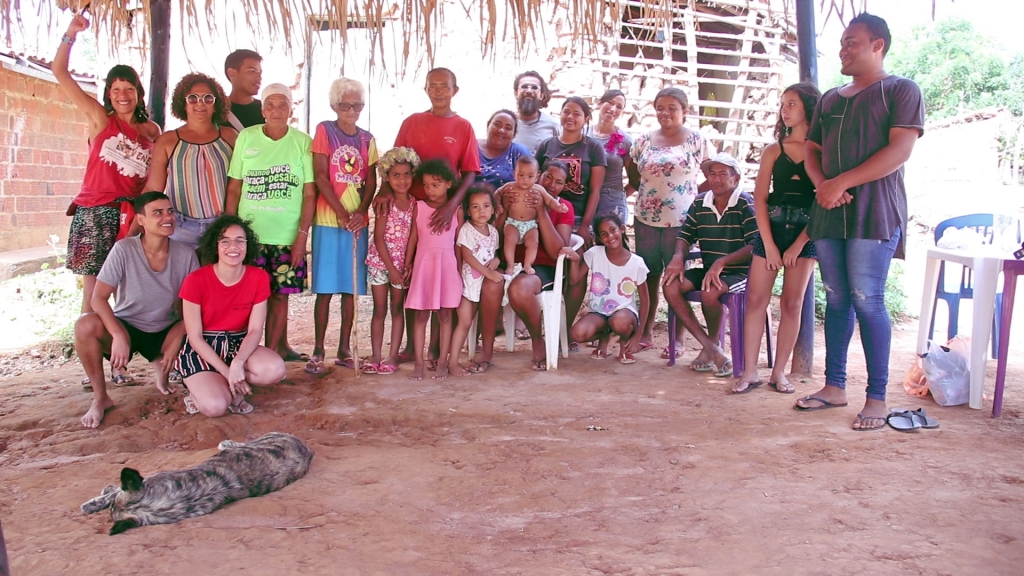
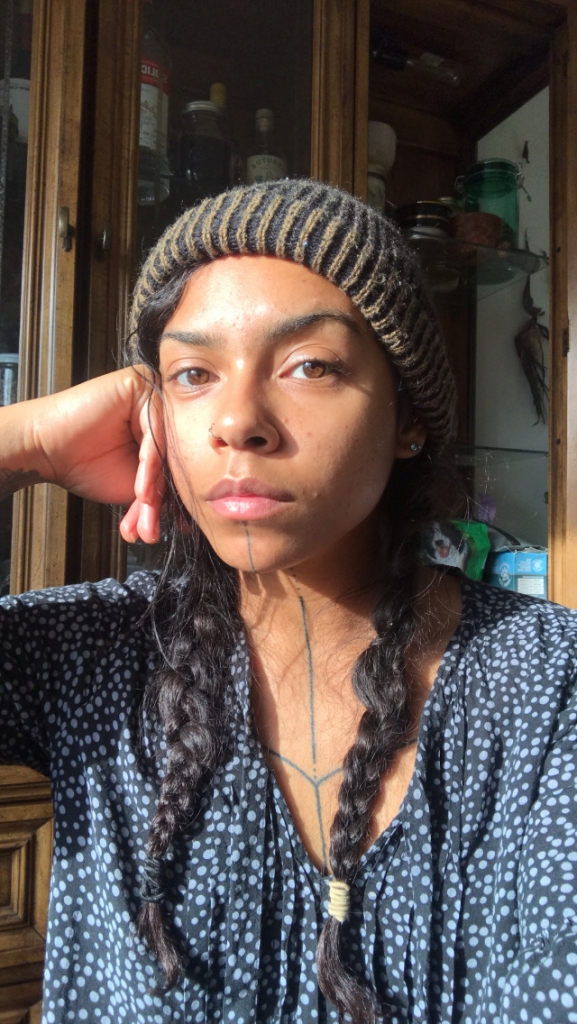
Karmella Cen Benedito de Barros is an inner-city Indigiqueer with Treaty 6 Mistawasis Nêhiyaw and Afro-Brazilian ancestry. They are a Multidisciplinary Artist, Writer, and Community Worker born and raised in diaspora as a guest on the unceded Squamish, Tsleil-Waututh, and Musqueam territories. Karmella currently supports the Indigenous Brilliance reading series; a collaborative series between Room Magazine and Massy Books, celebrating Indigenous women/2SQ storytellers.
Co-Presenter:
Vancouver Latin American Film Festival is located on the traditional, ancestral, and unceded territory of the Coast Salish Peoples, including the territories of the xʷməθkwəy̓əm (Musqueam), Skwxwú7mesh (Squamish), and Səl̓ílwətaʔ/Selilwitulh (Tsleil-Waututh) Nations.

